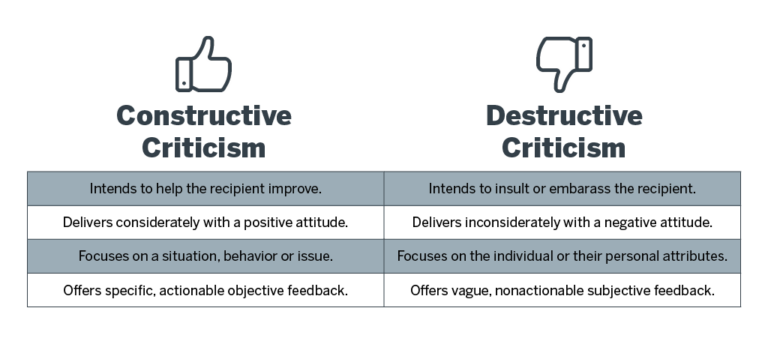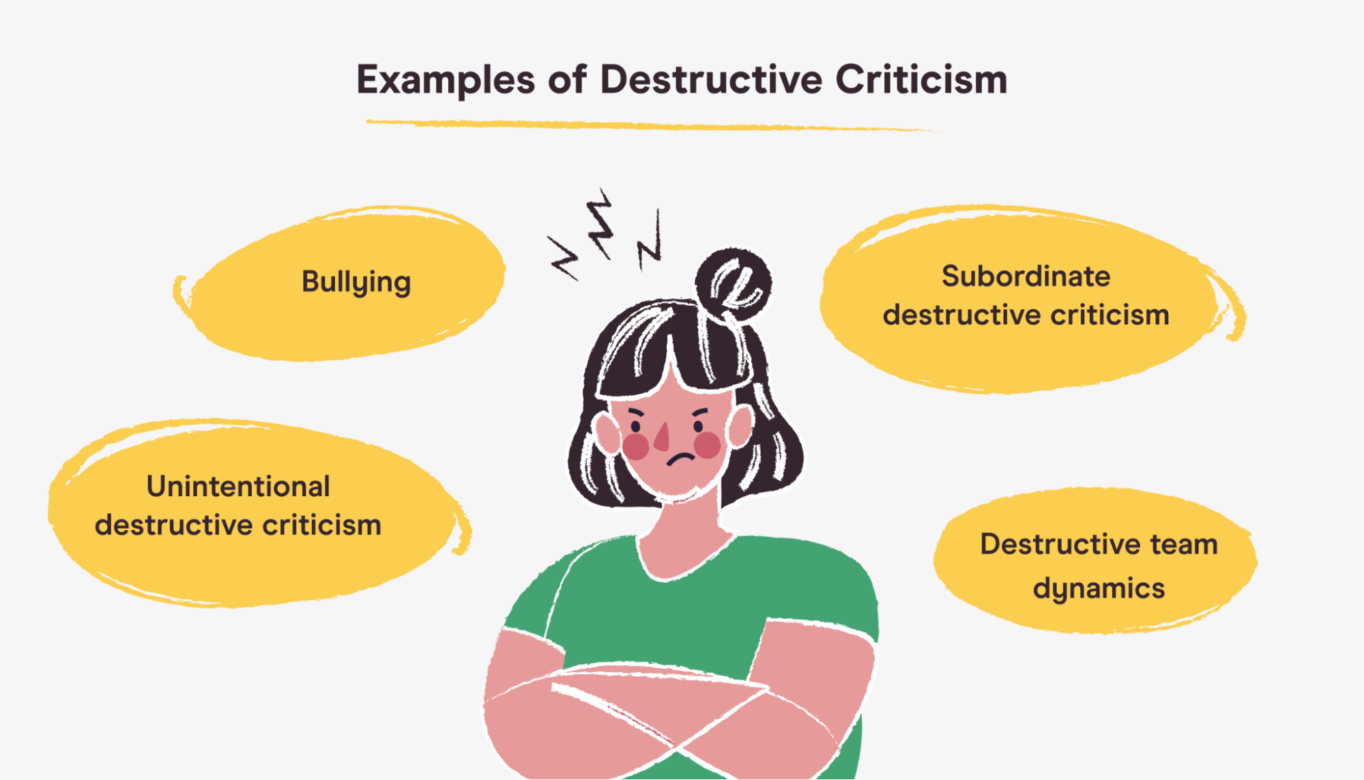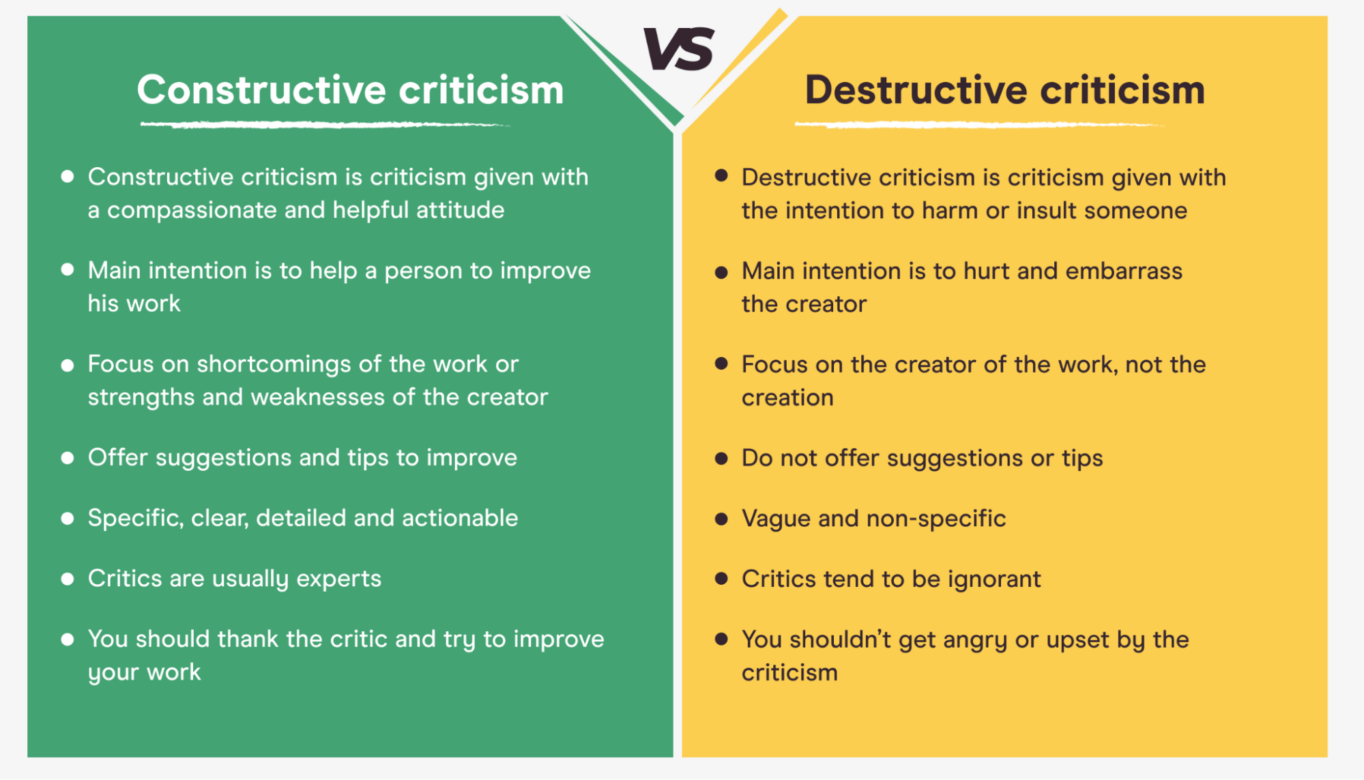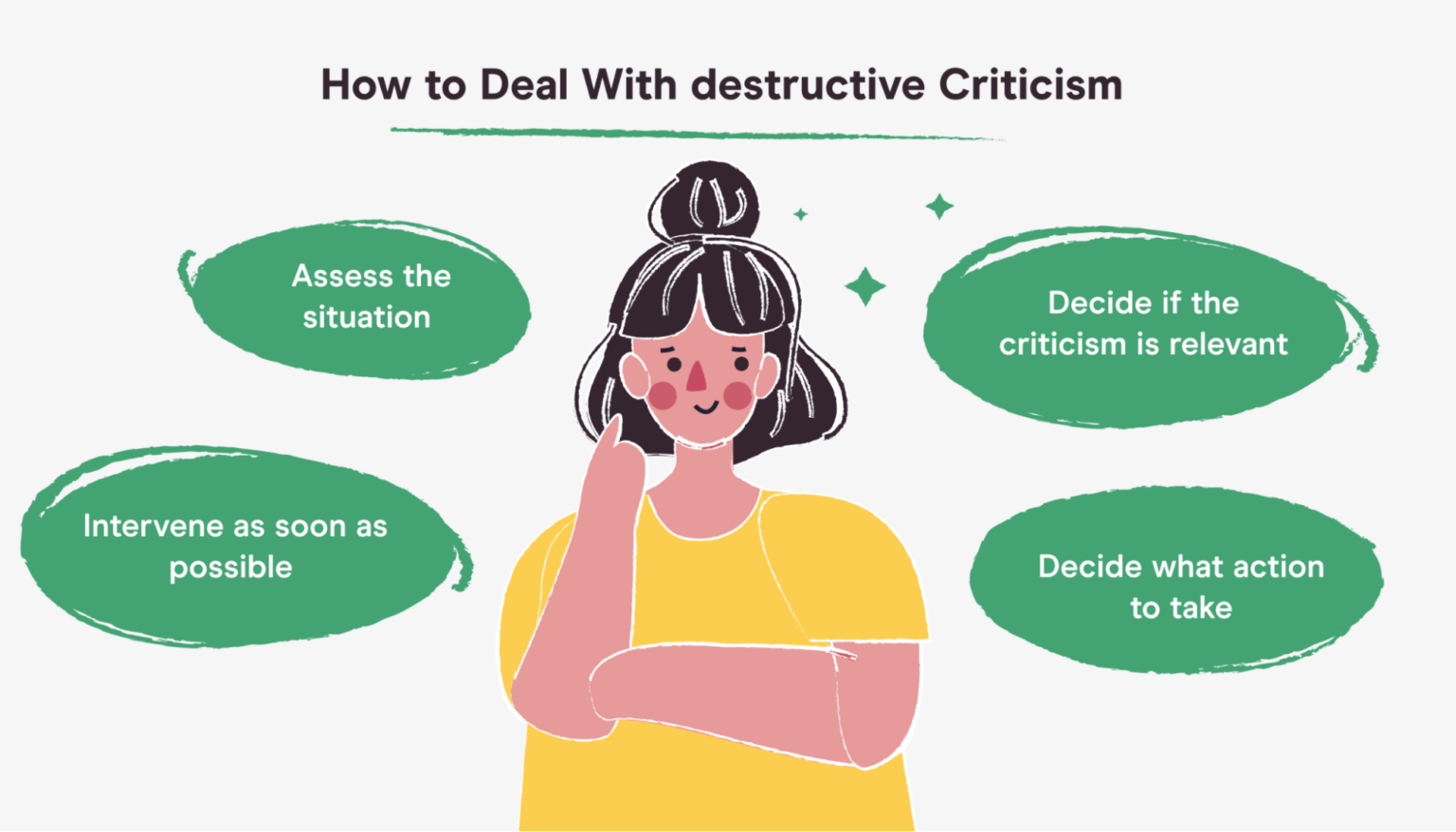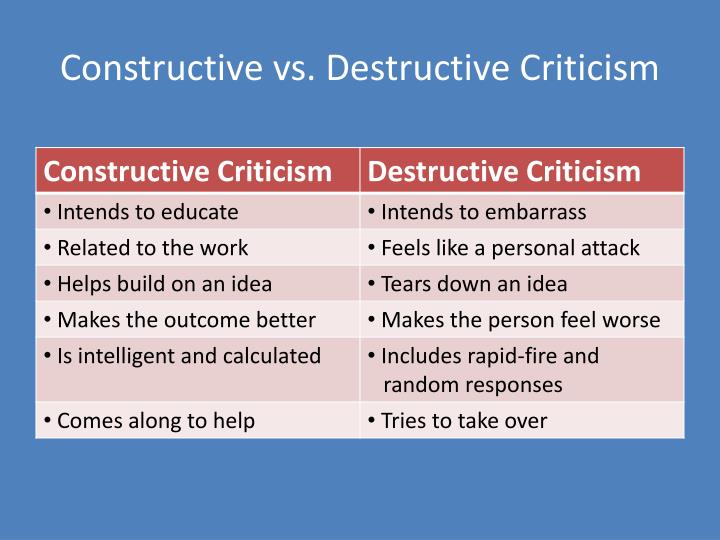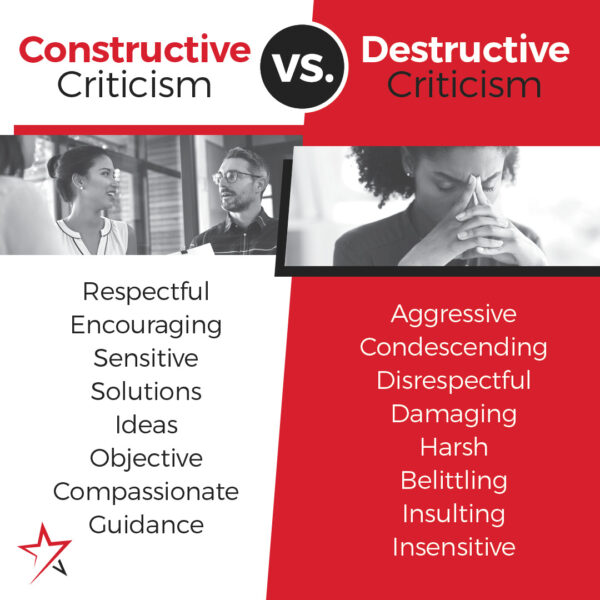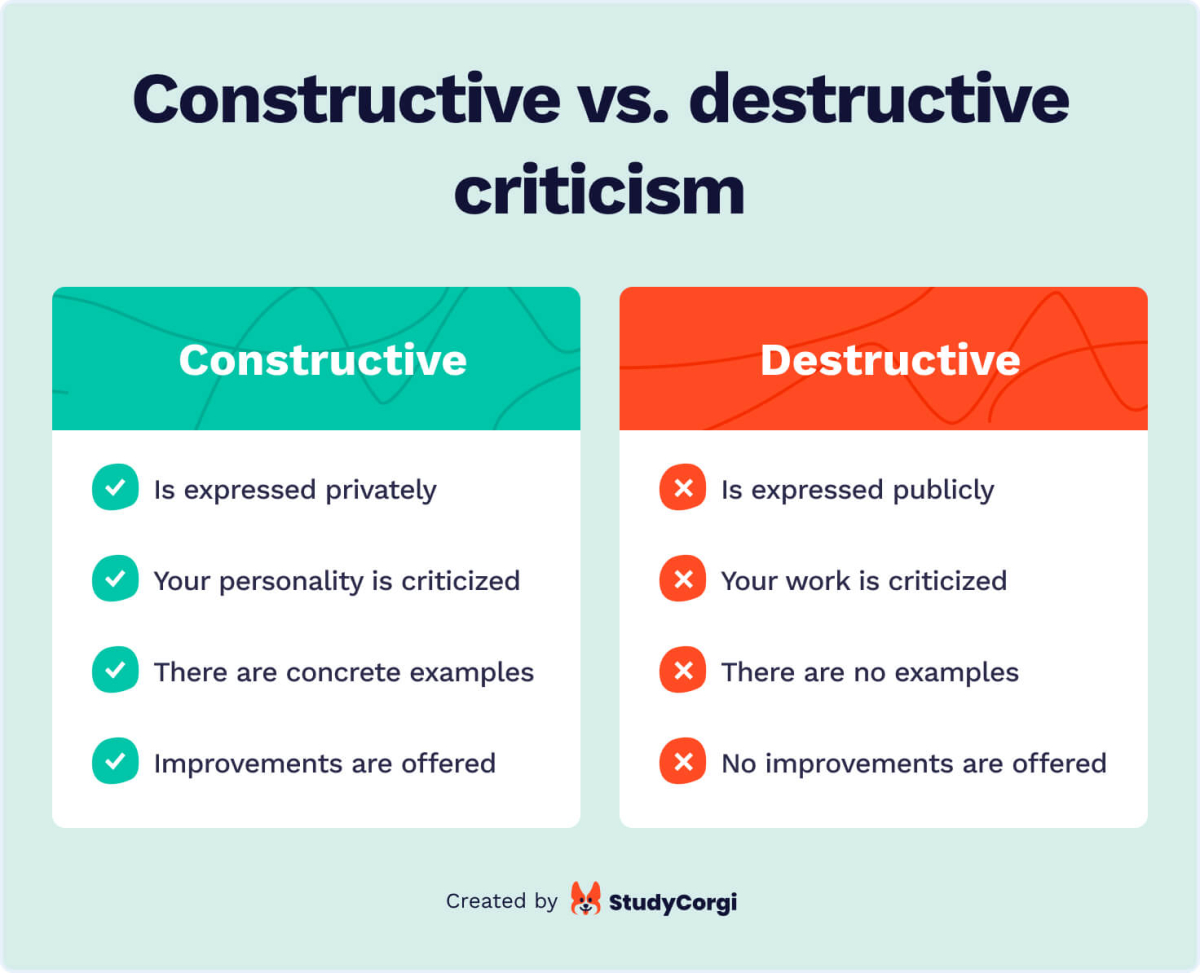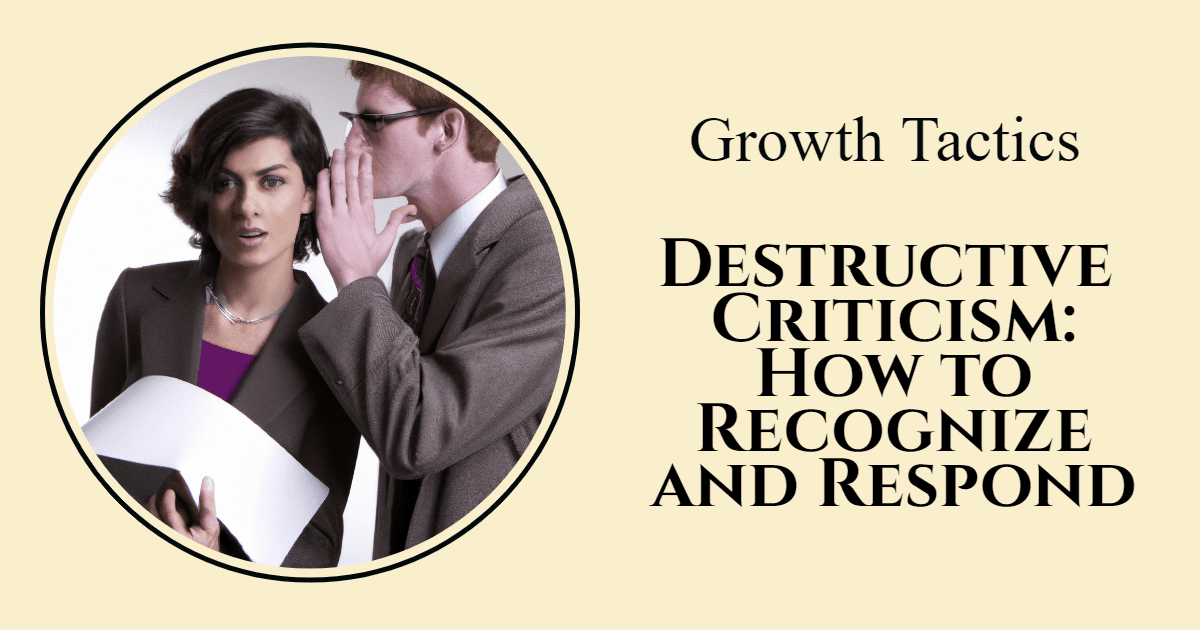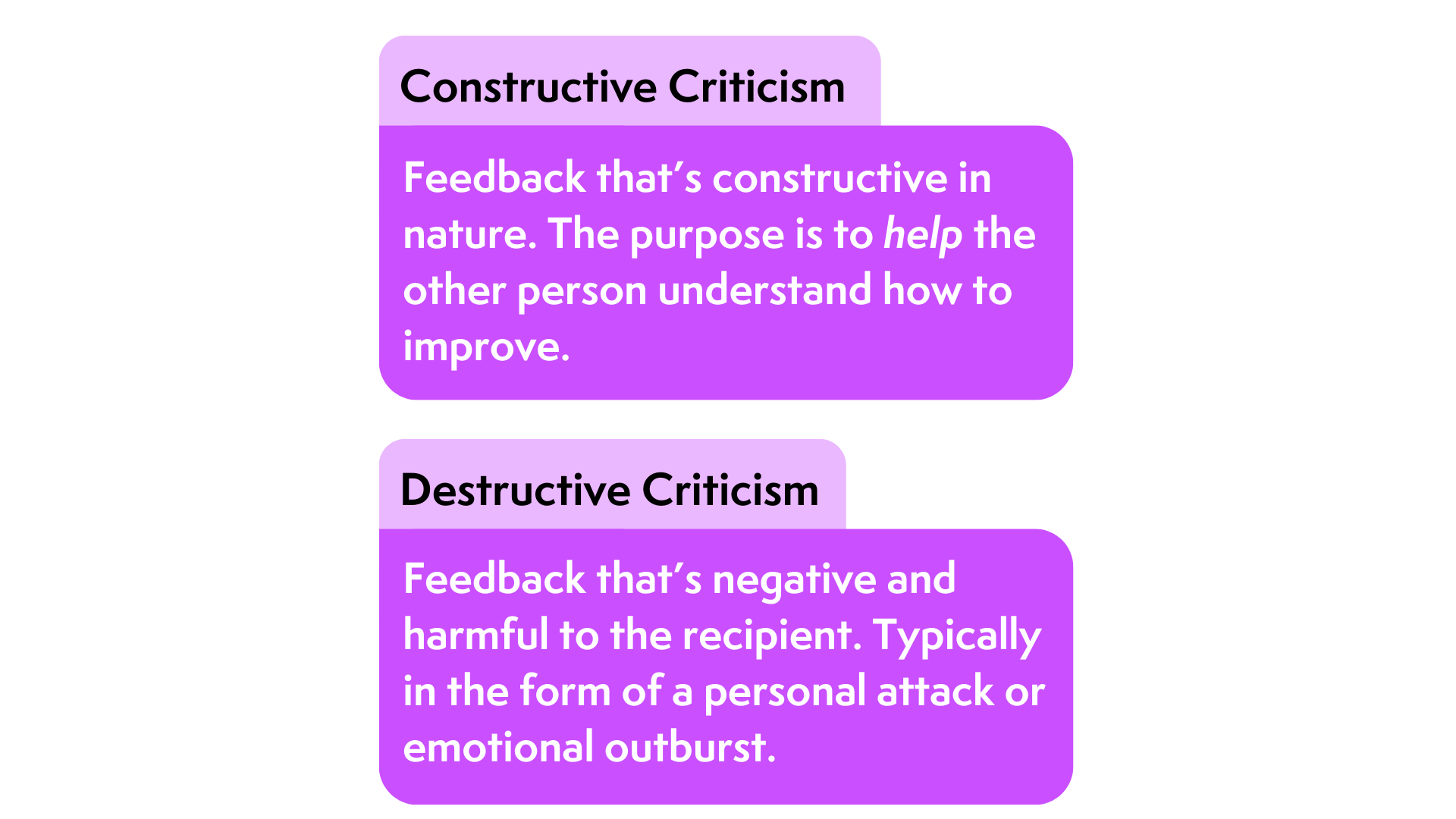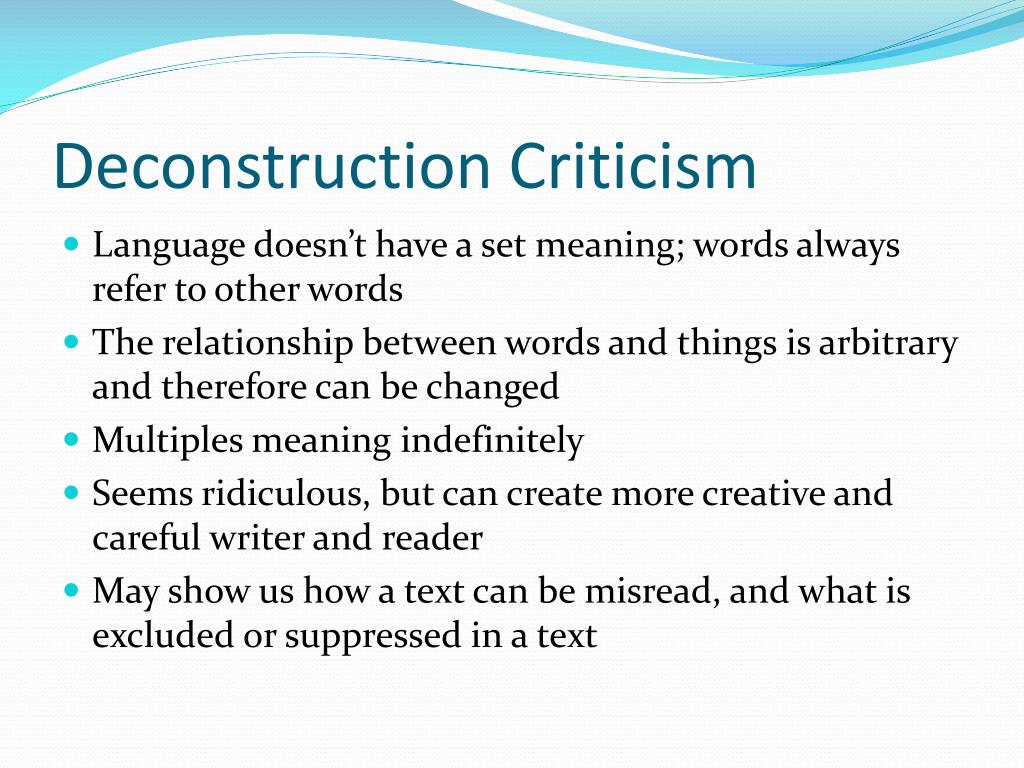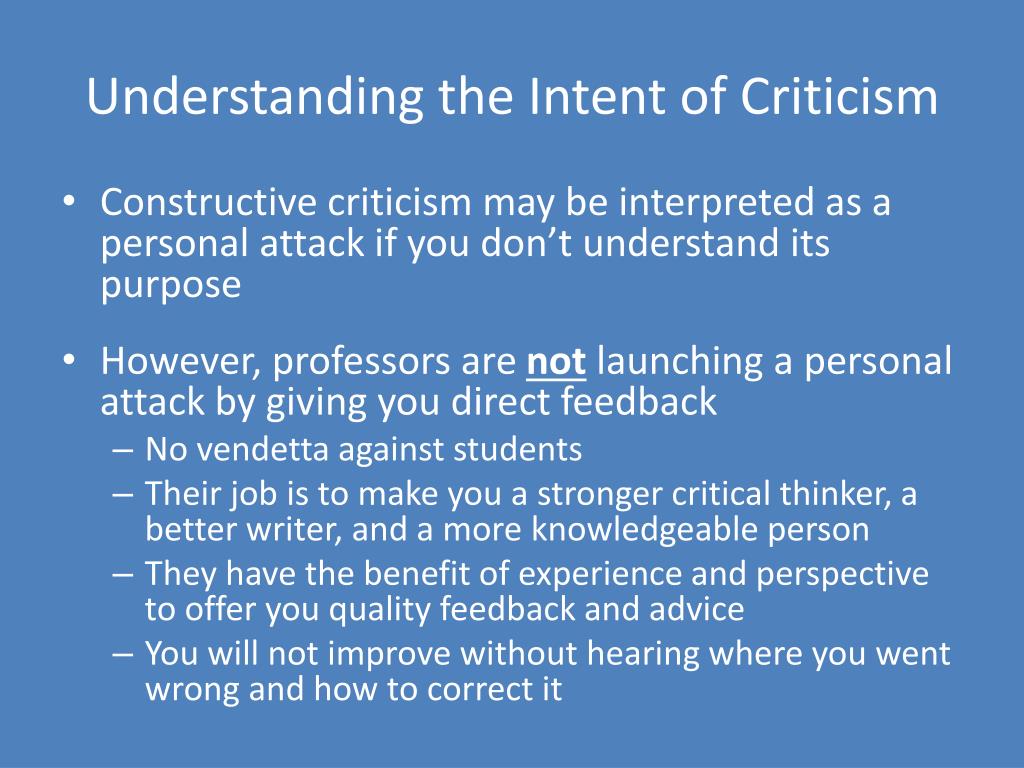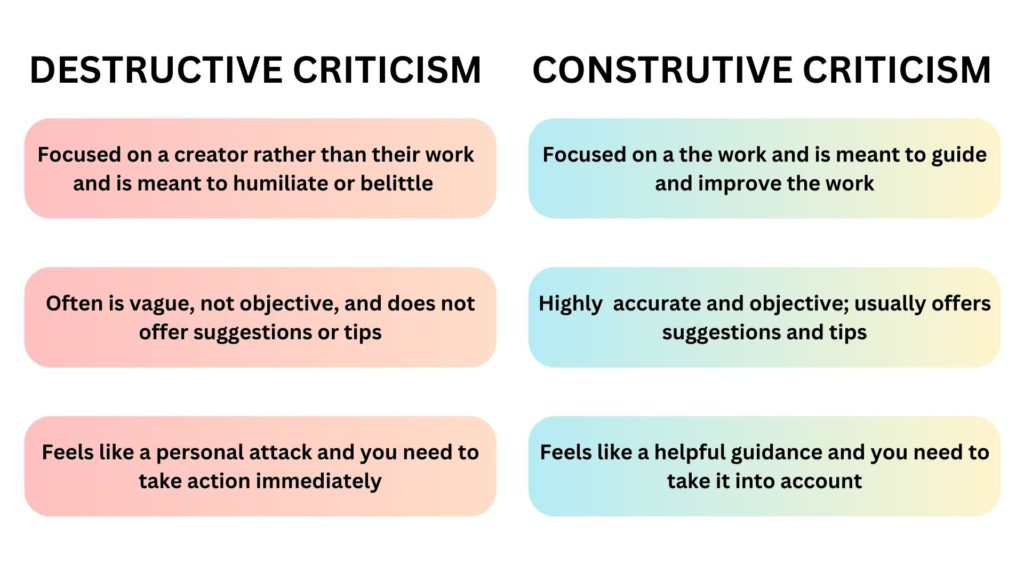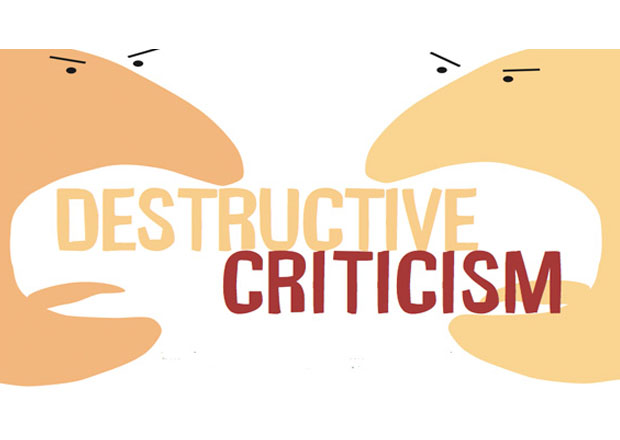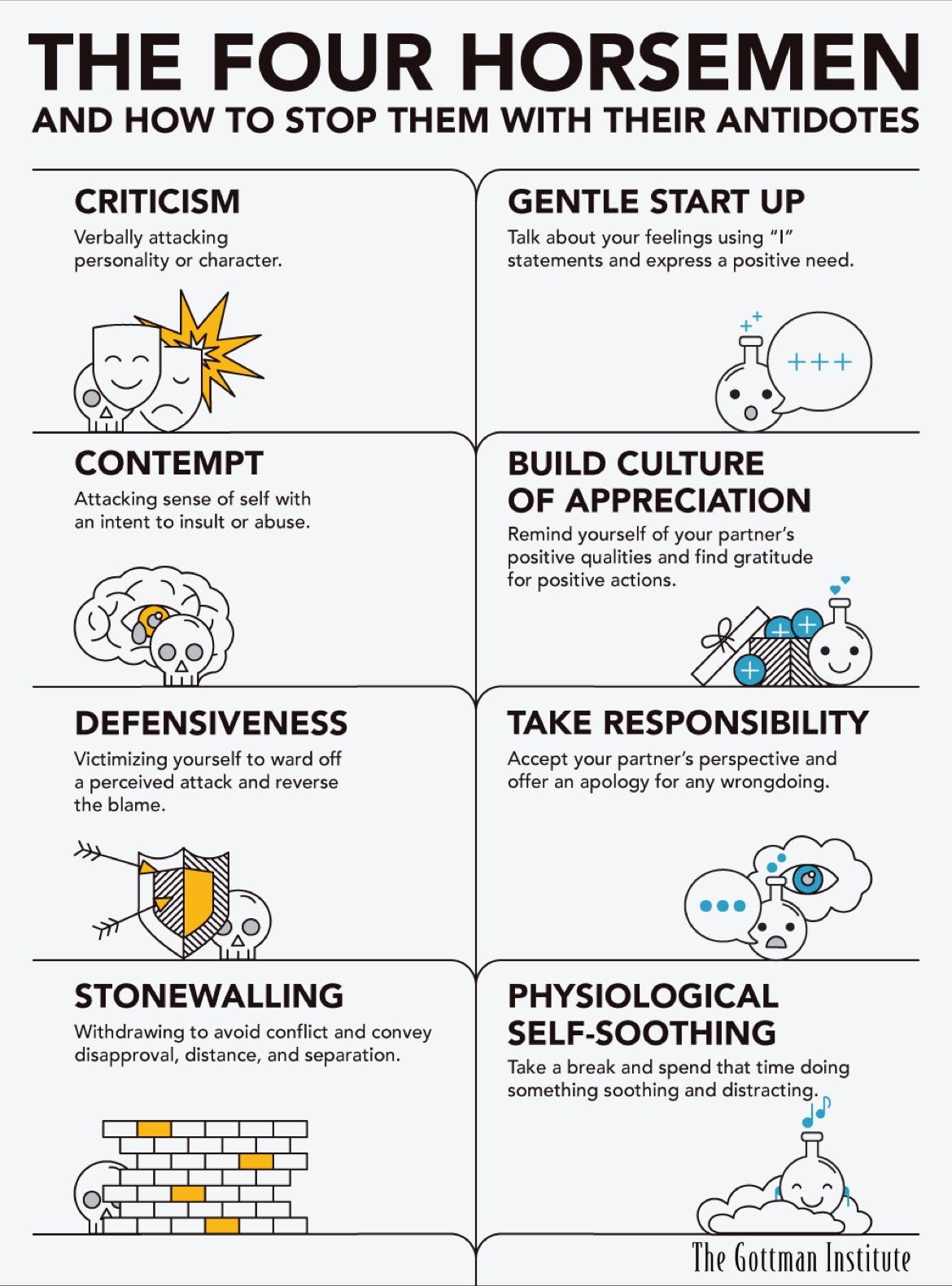Definition Of Destructive Criticism
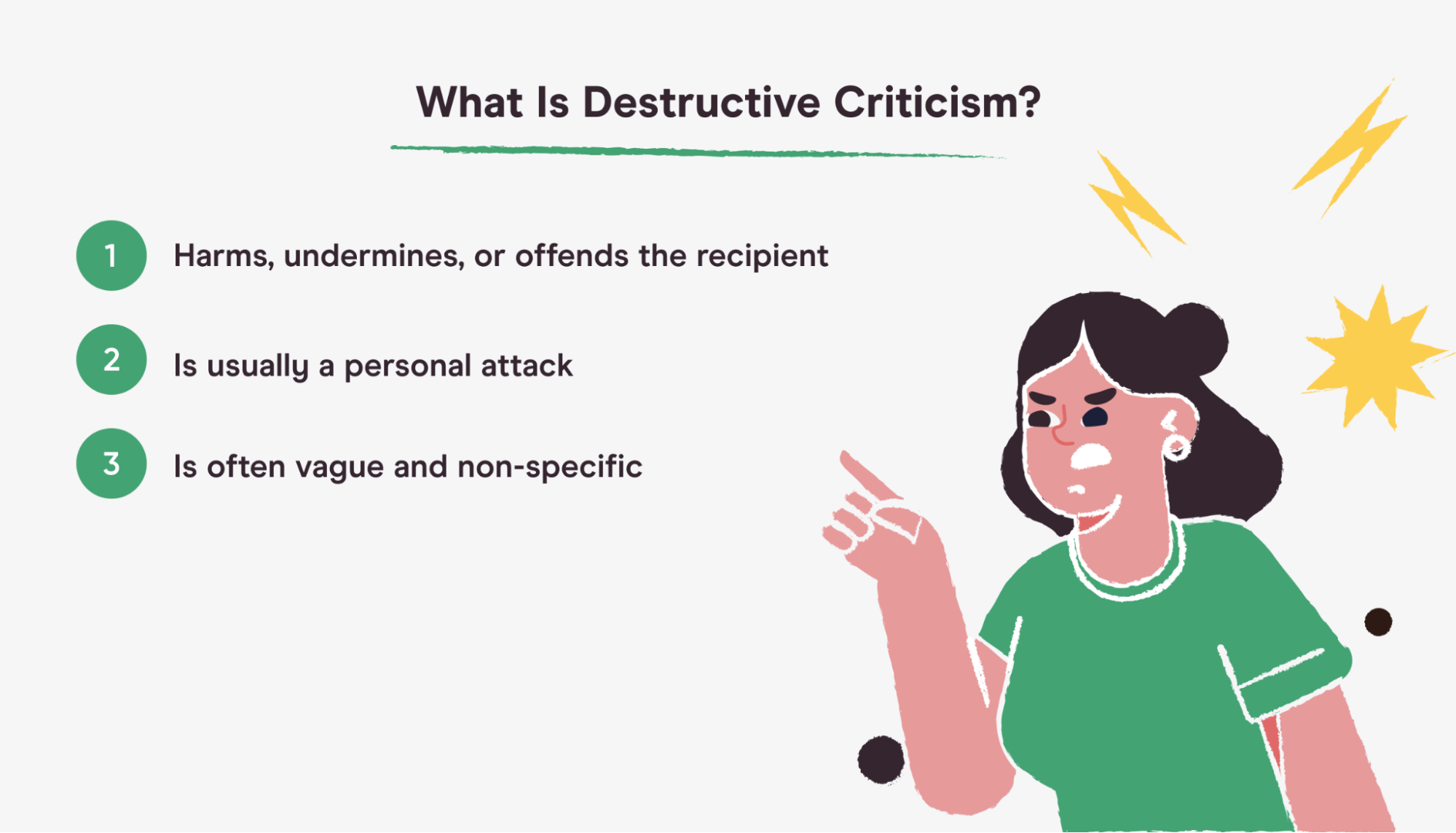
Imagine sitting in a sun-drenched cafe, a steaming mug warming your hands, as you share a project idea with a friend. Their face clouds over, and instead of constructive feedback, a barrage of negativity erupts. The air thickens, the warmth vanishes, and your creative spark flickers, threatened by a chilling wind. This, in essence, captures the feeling often associated with destructive criticism.
Destructive criticism, a pervasive force in personal and professional spheres, involves delivering feedback that aims to tear down rather than build up. This article delves into the definition, impact, and strategies for navigating such interactions, fostering a deeper understanding of its detrimental effects and offering pathways towards healthier communication.
Understanding Destructive Criticism
At its core, destructive criticism is characterized by negativity, a lack of specific suggestions for improvement, and a focus on personal attacks rather than objective evaluation.
It's distinct from constructive criticism, which aims to identify areas for growth while offering actionable steps for improvement. The difference lies not just in the words used, but in the intent behind them.
Key Characteristics
Several telltale signs can help identify destructive criticism. It often includes personal attacks, belittling remarks, and generalizations that lack factual basis.
The language used tends to be harsh, accusatory, and delivered without empathy. Furthermore, it frequently lacks specific suggestions for how to improve, leaving the recipient feeling demoralized and helpless.
The Impact
The consequences of destructive criticism can be far-reaching. Studies have shown that constant exposure to negativity can lead to decreased self-esteem, anxiety, and even depression.
In the workplace, it can stifle creativity, erode team morale, and ultimately hinder productivity. It creates a climate of fear, where individuals are hesitant to share ideas or take risks, fearing the sting of harsh judgment.
The Roots of Destructive Criticism
Understanding the origins of destructive criticism can shed light on why it occurs. Sometimes, it stems from the critic's own insecurities or unresolved issues.
They may project their own fears and shortcomings onto others, using criticism as a defense mechanism. In other cases, it may be a learned behavior, passed down through generations or modeled by authority figures.
Cultural norms can also play a role. In some environments, direct, even harsh, feedback is considered acceptable, while in others, it's seen as highly inappropriate.
Navigating Destructive Criticism
While it's impossible to completely eliminate destructive criticism, there are strategies for mitigating its impact. One of the most crucial is to develop a strong sense of self-worth.
Knowing your value and accomplishments can help you filter out unwarranted negativity. It also helps to remember that the criticism often says more about the critic than it does about you.
Responding Effectively
When faced with destructive criticism, try to remain calm and avoid reacting defensively. Ask for specific examples to better understand the critique, even if it's delivered poorly.
If the criticism becomes too personal or abusive, it's perfectly acceptable to disengage from the conversation. Setting boundaries is essential for protecting your mental and emotional well-being.
Seeking Support
Don't hesitate to seek support from trusted friends, family members, or mentors. Sharing your experiences and gaining perspective can help you process the criticism and develop coping mechanisms.
In some cases, professional counseling may be beneficial, particularly if the destructive criticism is chronic or deeply affecting your mental health. According to the American Psychological Association, seeking professional help can significantly improve one's ability to navigate challenging interpersonal dynamics.
Turning the Tide
Ultimately, fostering a culture of constructive feedback requires a collective effort. By consciously choosing to communicate with empathy, respect, and a focus on solutions, we can create environments that nurture growth and encourage collaboration.
It's about shifting the focus from tearing down to building up, from judgment to understanding. Remember, words have power; they can either break or build, and the choice is always ours.
As we close, reflect on a time you received criticism. Was it constructive, helping you grow, or did it leave you feeling deflated? Let that experience guide you as you strive to be a more thoughtful and supportive communicator. Let's create spaces where ideas flourish and individuals thrive, free from the chilling winds of destructive criticism.
